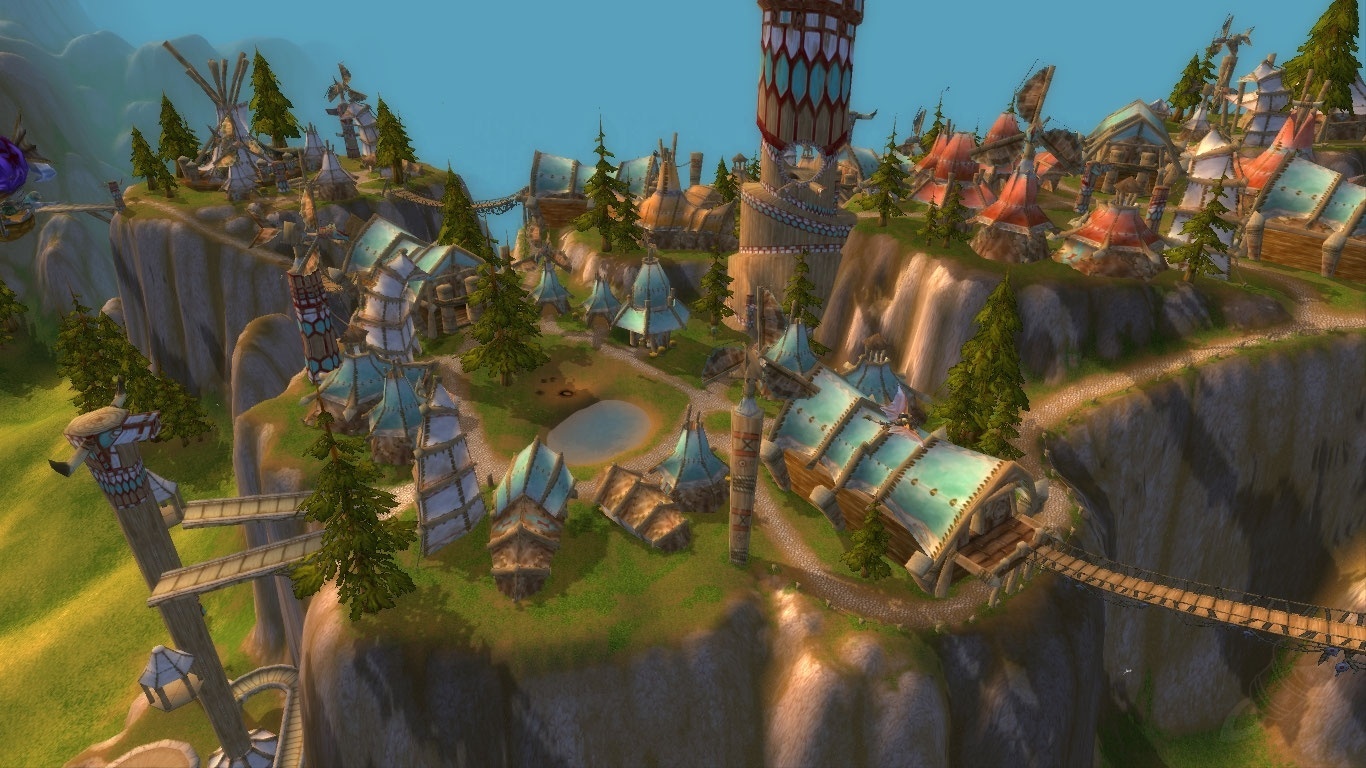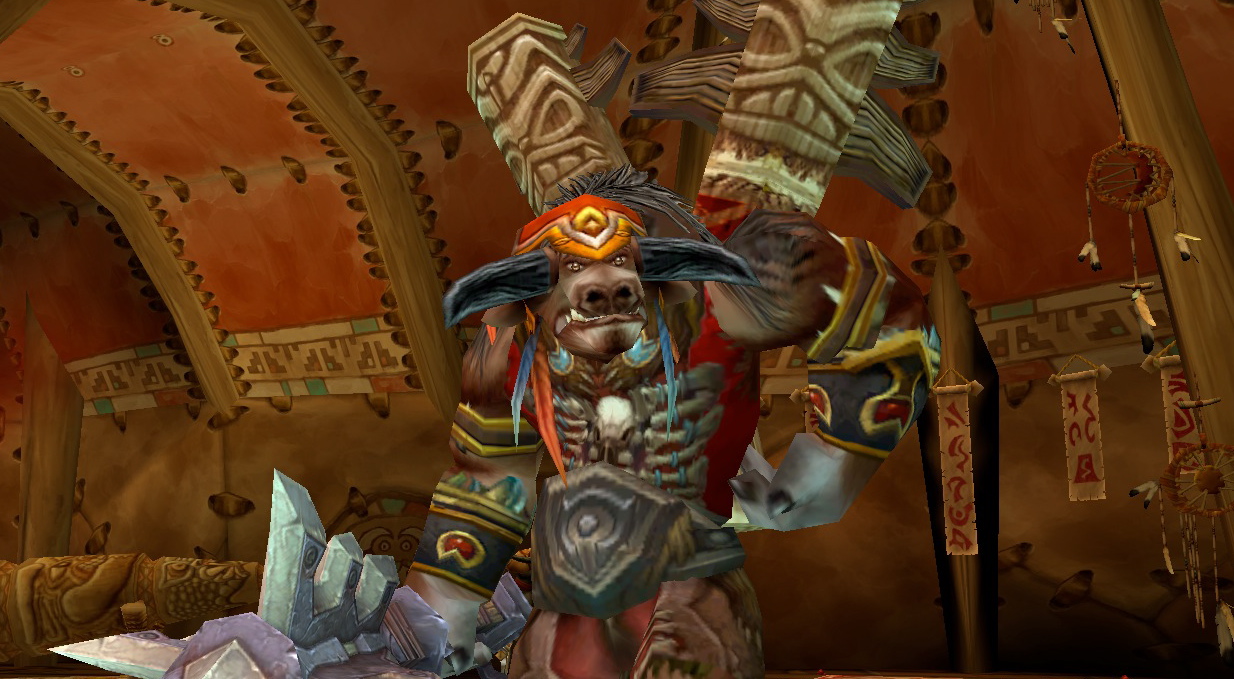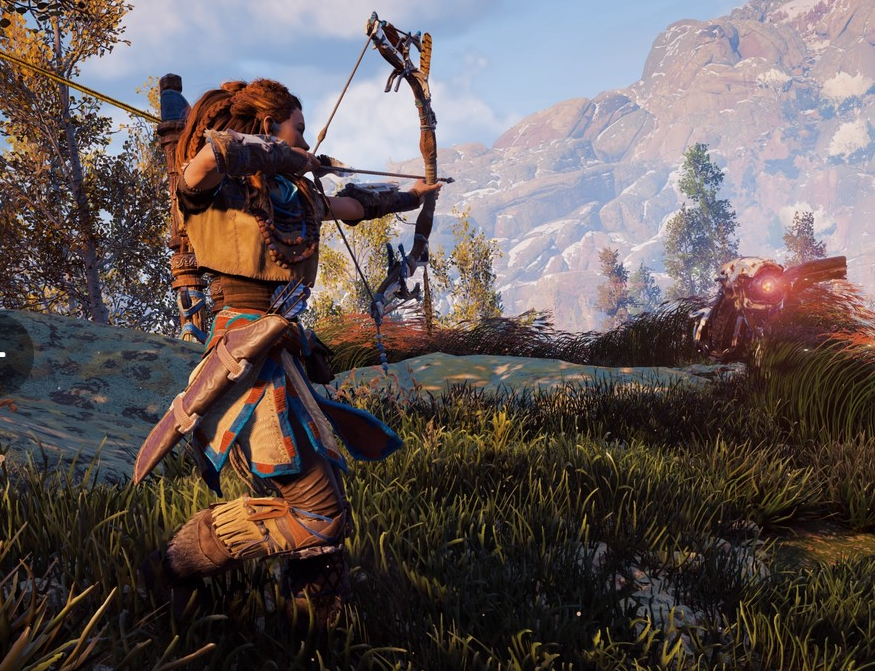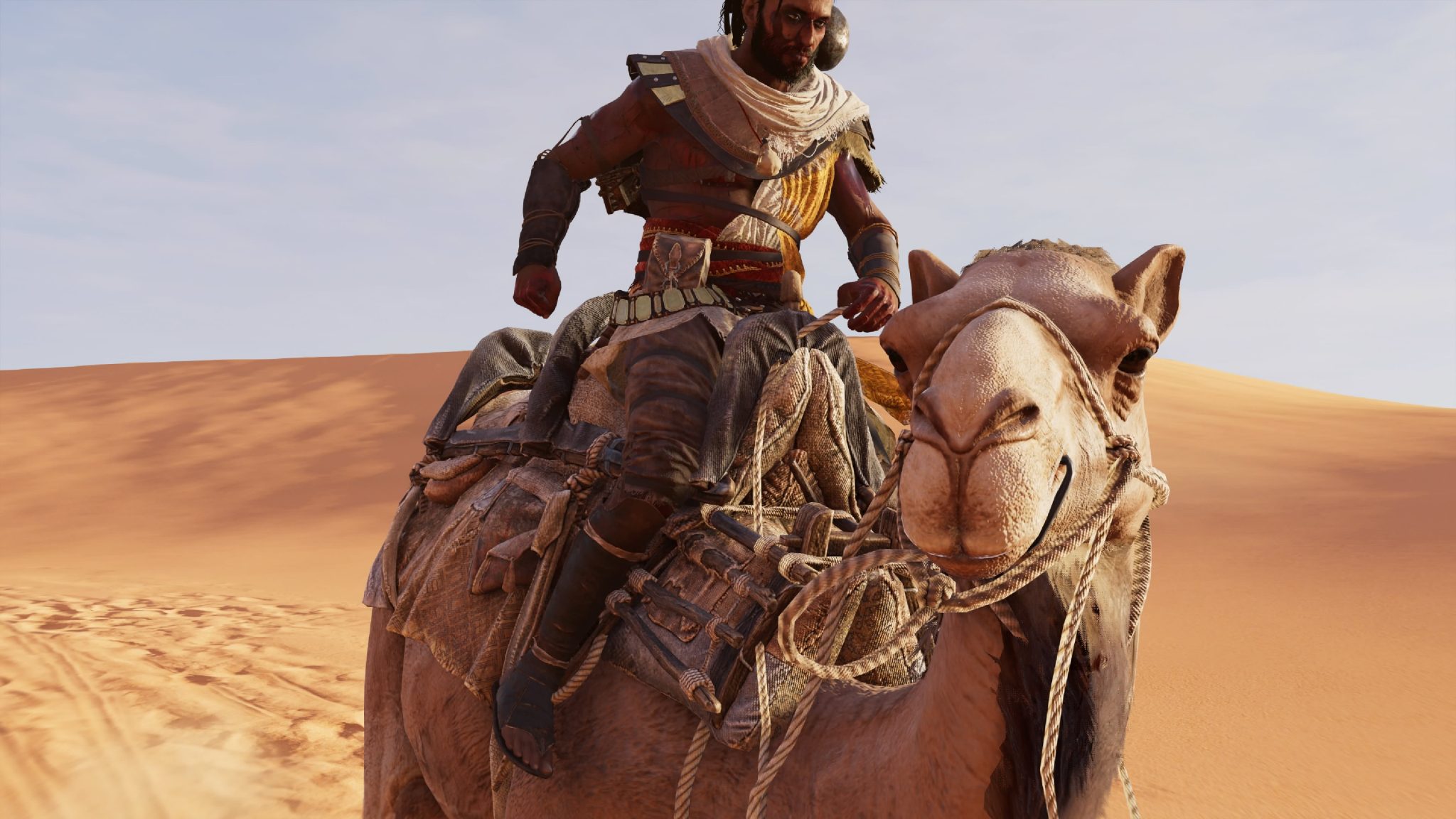Cultural Appropriation
Cultural appropriation is the copying or borrowing of ideas, work, or cultural identity of another culture. It is usually done without the permission or knowledge of the borrowed culture, often in order to make a profit. It is common with American football and baseball teams to use Native American themed team names, such as the Redskins or Braves. Cultural appropriation also occurs frequently in the music and fashion industry and unfortunately, in video games.
The World of Warcraft franchise makes extensive use of a playable race known as Tauren, which are quite obviously modeled after indigenous Native American culture. These minotaur-like cow characters are an odd mashup of many different American tribes. Villages are modeled with eastern wigwams, plains teepees, and north-western totem poles. Headdress wearing “chiefs” spout stereotyped greeting such as “howgh”. This treatment is not simply reserved for the indigenous cultures of America however. There are also heavily stereotyped Chinese Pandaren characters, as well as a slew of other borrowed cultures, including the Viking like Vyrkul and the Egyptian inspired Tol’Vir.
 Thunderbluff, World of Warcraft1
Thunderbluff, World of Warcraft1
 Tauren from World of Warcraft2
Tauren from World of Warcraft2
A slew of other game franchises made their fame on stereotypical portrayals of cultures. There’s the Wolfenstein series, the Prince of Persia games, Call of Duty which portrays middle eastern peoples as terrorists, and of course the God of War series based on Greek mythology. Horizon Zero Dawn also came under fire for using Native American motifs in its character art and charged language in its script such as tribal, savage, and braves. It should be noted that Okami is a game about Japanese mythology, made by a Japanese company. I therefore do not consider Okami to be a case of cultural appropriation.
 Horizon Zero Dawn3
Horizon Zero Dawn3
Some video games such as Assassin’s Creed are an edge case of cultural appropriation. On the one hand, they are portraying cultural identities without permission for profit. On the other, they are usually trying to do so with some historical accuracy, which the player then plays through using a fictional character. Personally, I have mixed feelings on this franchise. When Assassin’s Creed III came out, it was interesting to see this portrayal of colonial America in the region I grew up in. I cannot be certain of the accuracy of the portrayal of the historical storyline events. I do feel as if the portions involving a Native American character may have been in poor taste. Not because I do not support minority characters in starring roles, quite the opposite in fact. What I worry about is that the game may have been portraying the character and his people in a false, stereotyped way. The producers may have even sanitized portions of the tribe’s history for all I know.
 Assassin's Creed Origins4
Assassin's Creed Origins4